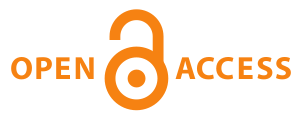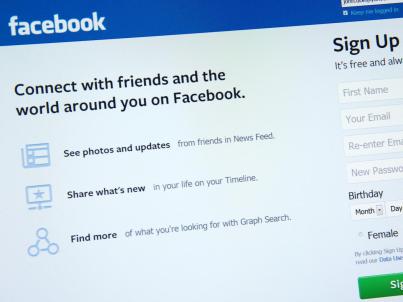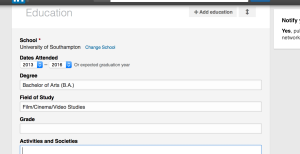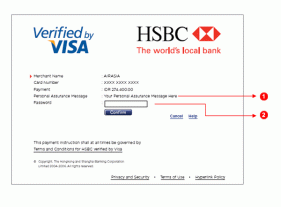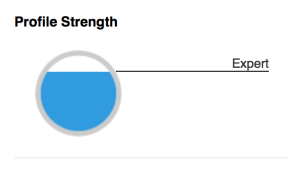
Living and working on the web: A final reflection
Since September 2015, I have been making blog posts for the UOSM2033 module. Throughout this experience, I have learnt about the benefits and the risks of maintaining an online profile, and have also been able to develop my own substantially.
I have developed my LinkedIn profile over the course of the first semester. I created an account a while ago and had forgotten about it. Now, I know its value, I have updated it with information about myself, experience, jobs and education.
Continue reading →

